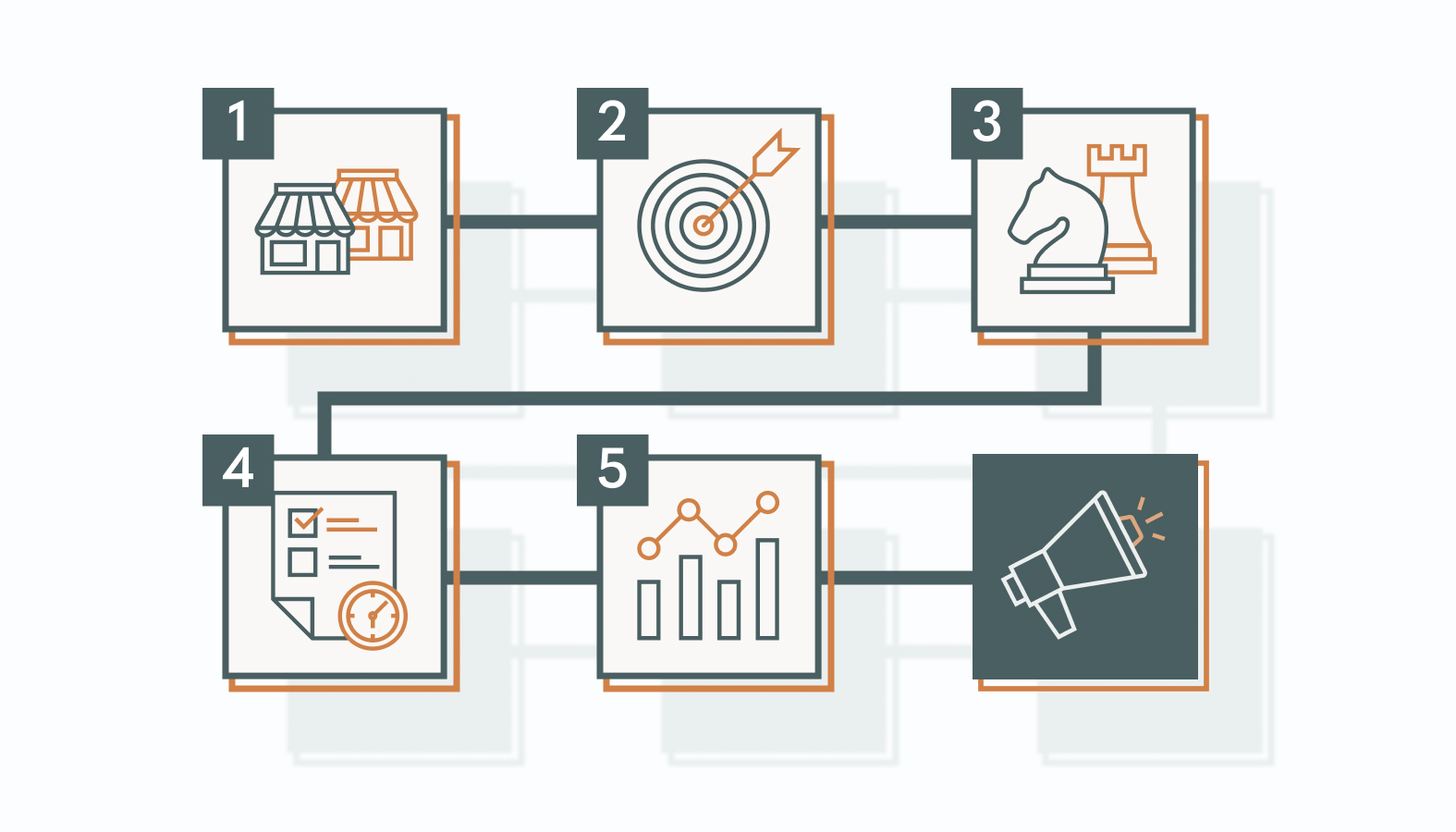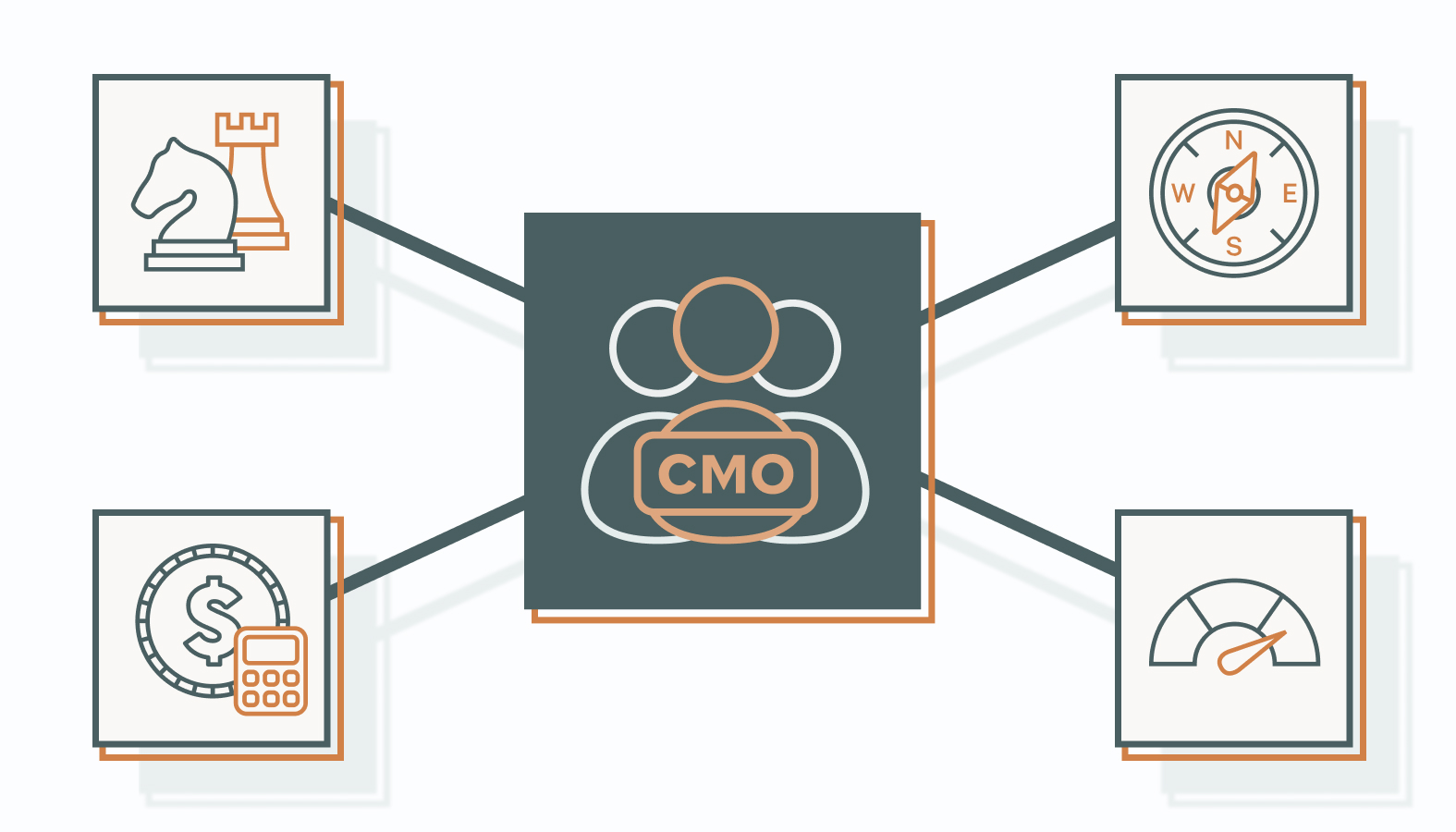In today’s fast-paced, hyper-competitive business landscape, staying relevant and connecting with your target audience is a constant challenge. It’s like trying to hit a moving target in the dark.
From crafting catchy slogans to predicting the next big trend, marketing is a high-stakes game. With a crowded marketplace, limited resources, and fickle consumers, finding the winning formula is more challenging than ever.
The question is: How can businesses stay ahead of the curve? The answer lies in mastering the art and science of marketing management.
What is Marketing Management?
Marketing management is the strategic process of guiding a company’s marketing efforts to achieve its business goals. It involves understanding customer needs, identifying market trends, and developing effective strategies to reach and engage the target audience.
Objectives of Marketing Management
A person or team can manage a company’s marketing efforts as long as they tackle these three key objectives like a pro:
Customer Satisfaction
Want to build a thriving business? It all starts with understanding your customers and exceeding their needs.
Gathering insights into customer preferences, behaviors, and feedback allows you to tailor your products and services to create a truly exceptional experience. This boosts customer satisfaction and fosters loyalty and positive word-of-mouth, setting your business apart from the competition.
Market Share Growth
Expanding your market share is essential to becoming a major player in your industry.
Here’s how to build a loyal customer base:
- Captivate Your Audience: Targeted promotions and compelling advertising campaigns to reach the right people at the right time.
- Offer Unbeatable Value: Set competitive pricing and maintain exceptional quality to attract and retain customers.
- Build Lasting Relationships: Loyalty programs, personalized communication, and top-notch customer service turn one-time customers into lifelong advocates.
Profit Maximization
Want to watch your profits soar? Effective marketing is not just about selling more; it’s about selling smarter. By optimizing your marketing efforts, you can maximize revenue while minimizing costs.
Here’s how:
- Focus on ROI: Prioritize marketing activities that deliver the biggest bang for your buck.
- Leverage Cost-Effective Channels: Explore affordable options like social media, content marketing, and email marketing.
- Optimize Your Budget: Allocate resources strategically to ensure your marketing efforts contribute directly to your bottom line.
Adopting a smart, cost-efficient approach to marketing leads to actual revenue growth and maximizing your business’s profitability.
Why Marketing Management Matters
Ticking marketing to-do lists isn’t enough to build a powerful brand. For your marketing efforts to work, you must be intentional with your activities, ensuring every step aligns with your business goals.
Keeping the Company’s Reputation Strong
Your company’s reputation is its most valuable asset. To safeguard it, you need a consistent brand message and a commitment to delivering exceptional products or services.
- A Strong Brand Identity: Clear, consistent messaging helps your audience understand precisely who you are and what you stand for. It’s like your brand’s personality.
- Quality Products and Services: It is crucial to deliver on your promises. When your products or services exceed expectations, customers become loyal advocates.
- Listening to Your Customers: Customer feedback is like a mirror, reflecting your company’s performance. By actively listening and responding, you demonstrate your commitment to continuous improvement.
- Public Relations Power: Public relations helps shape how the world sees your company. You can maintain a positive reputation by managing your public image and addressing any negative press.
Protect your company’s image by effectively addressing negative press and investing in positive initiatives to improve your messaging, products, and customer relationships.
Boosting Economic Growth
When companies implement effective marketing strategies, it shows in the sales report. This revenue growth enables them to expand their operations, hire more people, and contribute to a more robust economy.
Think of it this way: Marketing creates demand, which stimulates production and consumption. It’s a virtuous cycle that benefits everyone.
By generating demand for products and services, companies can fuel economic growth and create a more prosperous future for all.
Encouraging New Ideas and Innovations
Want to stay ahead of the competition? Your customers hold the key. Market research gives you access to understanding customer needs, preferences, and pain points. You’ll be able to discover untapped opportunities and create groundbreaking products.
Staying informed about market trends is equally important. It lets you anticipate customer needs and continuously improve your offerings.
A culture of innovation, fueled by customer insights and market awareness, is essential for introducing products and services that truly resonate with your audience.
Successfully Launching New Products
Launching a new product is like embarking on a space mission: it requires meticulous planning and execution.
The first step is to thoroughly understand your target audience, which will guide you toward effective advertising and promotional strategies. Next, highlight your product’s unique selling points and educate your customers about its benefits.
A well-executed launch–which creates a splash and leaves a lasting impression–can catapult your product to success and ensure long-term viability.
How Marketing Management Works
Marketing management involves a series of interconnected steps, each vital to ensuring your products or services reach the right audience and achieve maximum impact.
1. Understanding Your Market
Imagine your target market as a puzzle. Understanding the pieces—their needs, desires, and preferences—is the key to assembling a winning marketing strategy.
Market research helps you see the intricate details. By gathering data on consumer behavior, preferences, and feedback, you can tailor your offerings to fit the puzzle perfectly.
Competitive analysis and SWOT(Strengths, Weaknesses, Opportunities, and Threats) analysis are your strategic tools. Competitive analysis helps you understand the other puzzle pieces in the market, while SWOT analysis gives you a clear view of your own strengths and weaknesses.
Create a groundbreaking marketing strategy with the insights from these tools.
2. Setting Clear Goals
Setting specific, measurable, achievable, relevant, and time-bound (SMART) goals provides a clear path to success.
For example, instead of simply saying “increase sales,” SMART goals aim for concrete targets like “boost sales by 20% in the next quarter.”
These goals help you track your progress and measure the effectiveness of your marketing strategies.
3. Crafting Your Strategy
Crafting a winning marketing strategy is like building a house. You need a solid foundation, a strong structure, and the right finishing touches. The four Ps—Product, Price, Place, and Promotion—are the cornerstones of this foundation.
- Product Perfection: Ensure your product not only meets but exceeds customer expectations.
- Pricing Power: Strike the right balance between profitability and competitiveness.
- Place Matters: Choose distribution channels that put your product in front of the right people.
- Promotion Magic: Select the most effective tactics to reach your target audience and create buzz.
But the 4 Ps are just the beginning. Effective resource allocation and strategic targeting are equally important. Also, focus on brand positioning or creating a unique image in consumers’ minds that sets your product apart from the competition.
4. Putting the Plan into Action
Now that you have your marketing roadmap, it’s time to hit the gas.
The next step is to design and execute campaigns that captivate your target audience. Create engaging, irresistible content.
Choose the proper channels to deliver your message. Whether it’s social media, email, or traditional advertising, ensure you’re reaching your audience where they spend their time.
By crafting compelling campaigns and delivering them through the right channels, you’ll bring your marketing strategy to life and drive results.
5. Keeping Track and Adjusting
Track marketing campaigns in real-time with analytics tools. This allows you to gain valuable insights into their performance. Metrics and KPIs (key performance indicators) show how well your campaigns perform against your goals, allowing you to make informed decisions.
Customer feedback and performance data create a feedback loop that helps you stay agile. By listening to your customers and analyzing your results, you can make adjustments on the fly and ensure your marketing strategies remain effective, even as the market evolves.
Essential Tools and Software for Effective Marketing Management
In today’s digital world, the right tools can make a huge difference in how you market your business. Using the right technology simplifies your marketing efforts – it can help you work faster, stay consistent, and make smart decisions that lead to better results.
Marketing Automation Tools
Tired of spending hours on repetitive tasks? Marketing automation “automates” tasks such as email marketing and social media posts while ensuring consistency in your branding across all channels.
These automation tools free you up to focus on what really matters: strategic planning and creativity.
Top Automation Tools:
- HubSpot: A powerhouse for everything from email marketing to social media and lead nurturing.
- Marketo: Perfect for advanced automation needs, including personalized email marketing and in-depth analytics.
- Mailchimp: A user-friendly option for small to medium-sized businesses, offering simple email and social media automation.
With marketing automation, you can streamline your workflow, improve efficiency, and achieve better results.
Analytics and Reporting Software
Want to know what’s working and what’s not in your marketing campaigns? Analytics tools provide real-time data analysis and detailed reporting, helping you understand which strategies work and which need adjustments.
Top Analytics Tools:
- Google Analytics: A must-have for tracking website traffic and user behavior.
- Tableau: Visualize complex data sets with ease and gain actionable insights.
- Adobe Analytics: Get a complete picture of customer interactions across all channels.
With the right analytics tools, you’ll have the data you need to stay ahead of the curve and make your marketing campaigns a smashing success.
CRM Systems
Customer Relationship Management (CRM) systems give you the power to connect with customers on a personal level. By capturing and organizing customer data, CRM systems help you personalize your marketing efforts and build stronger relationships.
Benefits of CRM:
- Personalization: Tailor your marketing to individual customers, delivering more relevant and engaging experiences.
- Enhanced Relationships: Build stronger customer connections by understanding their needs and preferences.
Top CRM Systems:
- Salesforce: The industry leader, offering a comprehensive suite of features for sales, marketing, and customer service.
- Zoho CRM: A cost-effective option with a wide range of features to manage customer relationships.
- Microsoft Dynamics 365: Integrates seamlessly with other Microsoft products, providing a comprehensive CRM solution for businesses of all sizes.
Leveraging these powerful tools can streamline your marketing processes and improve customer satisfaction.
Challenges and Future Trends in Marketing Management
The marketing world is constantly changing, shaped by cutting-edge technologies and shifting market trends. This evolution presents exciting opportunities but comes with its fair share of challenges.
Emerging Trends
One of the most significant future trends in marketing management is the integration of artificial intelligence (AI).
AI enables marketers to quickly analyze vast amounts of data, uncovering insights that can drive more personalized and effective marketing strategies. AI-powered tools can also automate tasks like customer segmentation, predictive analytics, and content creation, enhancing efficiency and accuracy.
Augmented reality (AR) is another trend gaining traction. This technology is bringing marketing to life. From product demonstrations to virtual try-ons, AR offers immersive and interactive experiences that captivate customers.
Data privacy has become a critical concern as digital marketing continues to expand. With growing awareness and regulations around data protection, such as the General Data Protection Regulation (GDPR) and the California Consumer Privacy Act (CCPA), marketers must prioritize ethical data practices. Ensuring transparency and obtaining consumer consent is paramount for maintaining trust and compliance.
Challenges Marketers Face
Aside from technological advancements, the marketing landscape is a complex maze, filled with challenges that can trip up even the most experienced marketers. Here are some of the biggest hurdles:
- Intense Competition: With more businesses vying for attention, standing out is tougher than ever. Marketers must get creative and find unique ways to differentiate their brands.
- Evolving Consumer Behavior: The digital age has empowered consumers, giving them more choices and information than ever before. Marketers must be agile and adapt their strategies to keep up with changing customer preferences.
- Economic Uncertainty: Economic fluctuations can impact consumer spending and business investments. Marketers must be prepared to adjust their strategy to weather downturns and capitalize on growth opportunities.
The Role of a Fractional CMO in Marketing Management
If your company faces any of the challenges above, or your startup isn’t ready to build a marketing team in-house, a fractional CMO can provide expert guidance and strategic leadership. Here’s how:
Strategic Marketing Leadership
A fractional CMO brings a wealth of experience and expertise to the table, ensuring that your marketing efforts are robust and adaptable to the ever-changing market landscape.
Key Benefits:
- Customized Strategy: Develop a tailored marketing strategy that aligns with your unique business goals.
- Adaptability: Ensures your strategy remains relevant and effective in a dynamic market.
- Clear Direction: Sets clear, achievable goals and provides a roadmap for success.
- Mentorship: Elevates the skills and capabilities of your internal marketing team, ensuring long-term sustainability.
A fractional CMO is more than just a consultant; they’re a strategic partner who can help you steer your business toward success.
Expert Guidance and Oversight
A fractional CMO brings a wealth of marketing knowledge and experience to the table. They can provide a fresh perspective on your marketing efforts, identify areas for improvement, and optimize your strategies.
Key Benefits:
- Comprehensive Evaluation: Analyze your existing marketing campaigns, channels, and customer engagement strategies to identify strengths and weaknesses.
- Strategic Refinement: Provides expert guidance to refine and optimize your marketing efforts, ensuring they align with best practices.
- Maximum Impact: Ensures that every marketing initiative is geared towards achieving the best possible results.
With a fractional CMO on your team, you’ll benefit from expert oversight, ensuring your marketing efforts are always on track and delivering maximum impact.
Resource Optimization
A fractional CMO is a master of resource management. With their strategic expertise, they identify opportunities to save money without sacrificing results, ensuring your marketing dollars are spent wisely.
Key Benefits:
- Cost-Saving Strategies: Implements measures to reduce marketing costs while maintaining effectiveness.
- Strategic Allocation: Allocates resources to the most impactful marketing activities.
- ROI Optimization: Ensures that every dollar spent generates maximum return on investment.
By working with a fractional CMO, you can achieve more with less, making your marketing budget go further than ever before.
Measurable Results
A fractional CMO is all about results. They emphasize data-driven decision-making, using key performance indicators (KPIs) to track the success of your marketing campaigns. By setting clear benchmarks, a fractional CMO helps you understand what success looks like and how to achieve it.
Key Benefits:
- Data-Driven Decisions: Makes informed decisions based on analytics and metrics.
- ROI Focus: Ensures that marketing efforts contribute directly to the bottom line.
- Agility and Responsiveness: Stays on top of performance and adjusts as needed to maintain success.
With a fractional CMO on your team, you’ll have the data-driven insights you need to make your marketing campaigns a resounding success.
The Future of Marketing: A Strategic Imperative
The future of marketing is bright, and with the right strategies and tools, your business can thrive in this dynamic landscape.
Key Takeaways:
- Customer-Centricity: Place your customers at the heart of your marketing strategy. Understand their needs, preferences, and behaviors to deliver exceptional experiences.
- Data-Driven Decision Making: Embrace analytics and technology to gain valuable insights and make informed marketing decisions.
- Adaptability: Be prepared to adapt your marketing strategies as market trends and consumer behavior evolve.
- Strategic Leadership: Consider partnering with a fractional CMO to provide expert guidance and elevate your marketing efforts.
To position your business for long-term success, build substantial brand equity, and drive sustainable growth.
Ready to Elevate Your Marketing Management?
Navigating the intricate world of marketing management can be challenging, but with the right strategies and insights, your business can thrive.
Are you ready to implement these strategies? Our experts are here to provide personalized guidance and tailored solutions that align with your unique business needs.
Schedule a candid conversation with one of our experts » and discover how we can help you:
- Optimize your marketing strategy for maximum impact.
- Leverage the latest marketing tools and technologies.
- Drive sustainable growth and achieve your business goals.
Take the first step towards marketing excellence.









